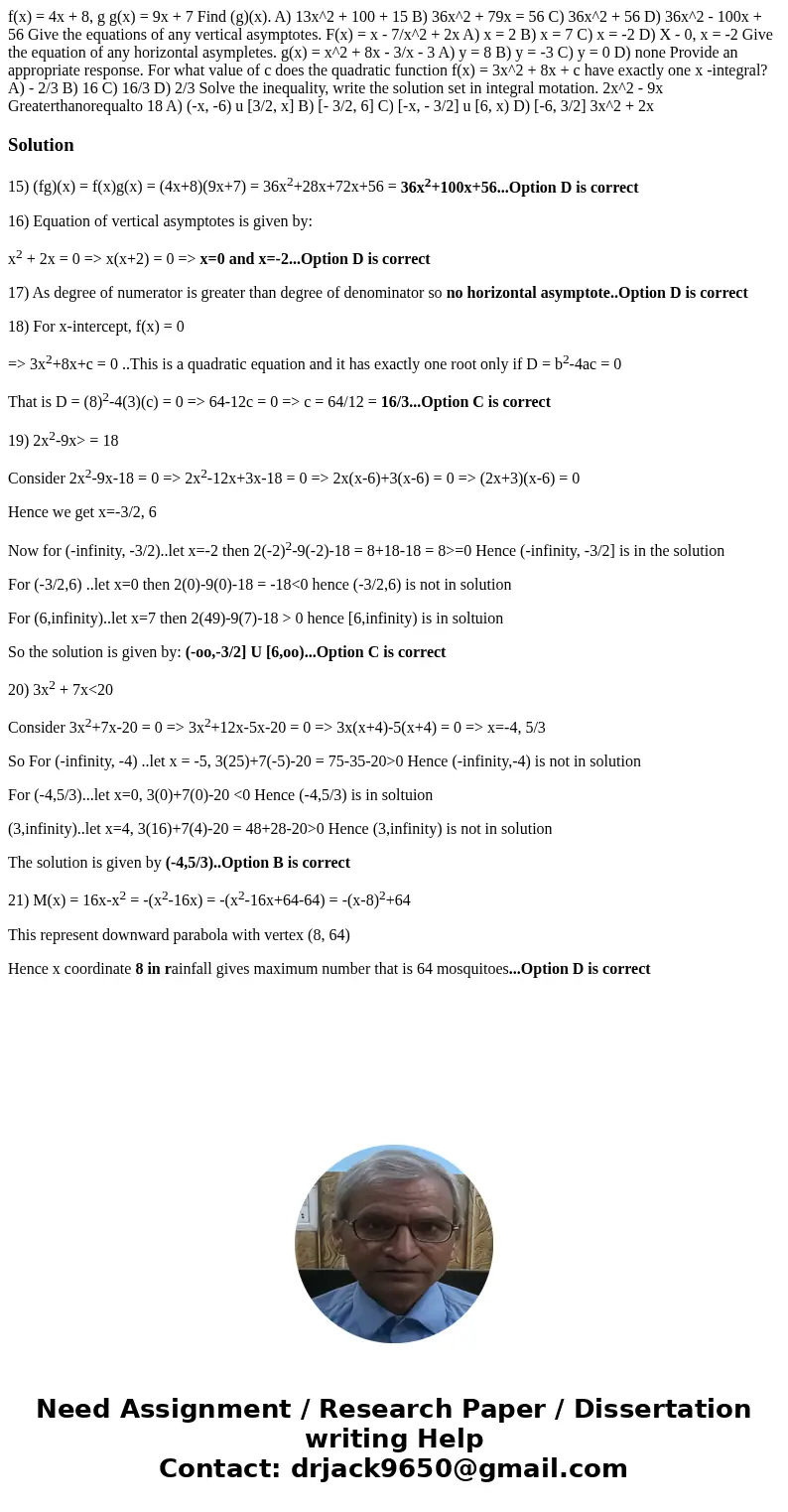fx 4x 8 g gx 9x 7 Find gx A 13x2 100 15 B 36x2 79x 5
Solution
15) (fg)(x) = f(x)g(x) = (4x+8)(9x+7) = 36x2+28x+72x+56 = 36x2+100x+56...Option D is correct
16) Equation of vertical asymptotes is given by:
x2 + 2x = 0 => x(x+2) = 0 => x=0 and x=-2...Option D is correct
17) As degree of numerator is greater than degree of denominator so no horizontal asymptote..Option D is correct
18) For x-intercept, f(x) = 0
=> 3x2+8x+c = 0 ..This is a quadratic equation and it has exactly one root only if D = b2-4ac = 0
That is D = (8)2-4(3)(c) = 0 => 64-12c = 0 => c = 64/12 = 16/3...Option C is correct
19) 2x2-9x> = 18
Consider 2x2-9x-18 = 0 => 2x2-12x+3x-18 = 0 => 2x(x-6)+3(x-6) = 0 => (2x+3)(x-6) = 0
Hence we get x=-3/2, 6
Now for (-infinity, -3/2)..let x=-2 then 2(-2)2-9(-2)-18 = 8+18-18 = 8>=0 Hence (-infinity, -3/2] is in the solution
For (-3/2,6) ..let x=0 then 2(0)-9(0)-18 = -18<0 hence (-3/2,6) is not in solution
For (6,infinity)..let x=7 then 2(49)-9(7)-18 > 0 hence [6,infinity) is in soltuion
So the solution is given by: (-oo,-3/2] U [6,oo)...Option C is correct
20) 3x2 + 7x<20
Consider 3x2+7x-20 = 0 => 3x2+12x-5x-20 = 0 => 3x(x+4)-5(x+4) = 0 => x=-4, 5/3
So For (-infinity, -4) ..let x = -5, 3(25)+7(-5)-20 = 75-35-20>0 Hence (-infinity,-4) is not in solution
For (-4,5/3)...let x=0, 3(0)+7(0)-20 <0 Hence (-4,5/3) is in soltuion
(3,infinity)..let x=4, 3(16)+7(4)-20 = 48+28-20>0 Hence (3,infinity) is not in solution
The solution is given by (-4,5/3)..Option B is correct
21) M(x) = 16x-x2 = -(x2-16x) = -(x2-16x+64-64) = -(x-8)2+64
This represent downward parabola with vertex (8, 64)
Hence x coordinate 8 in rainfall gives maximum number that is 64 mosquitoes...Option D is correct

 Homework Sourse
Homework Sourse